Transform your outdoor adventures with gear that’s as kind to nature as it is reliable. When planning for sustainable camping in Ontario parks, choosing the right equipment makes all the difference. Today’s eco-conscious camping gear combines durability with environmental responsibility, featuring solar-powered lanterns that eliminate battery waste, biodegradable tent stakes crafted from renewable materials, and sleeping bags made from recycled materials that perform brilliantly in Ontario’s variable climate. Beyond just reducing your carbon footprint, these sustainable alternatives often prove more durable and cost-effective than their traditional counterparts, making them smart investments for both weekend warriors and seasoned backpackers. From ultralight recycled aluminum cookware to water filters that eliminate the need for plastic bottles, the latest innovations in sustainable camping gear prove that protecting our wilderness doesn’t mean compromising on performance or comfort.
Essential Eco-Friendly Camping Equipment
Solar-Powered Solutions
Harnessing the sun’s power is one of the most effective eco-friendly camping practices, and it’s perfectly doable even in Ontario’s variable weather. I’ve found that portable solar chargers with built-in power banks are lifesavers during extended trips, especially models rated for cloudy conditions. Look for units with at least 20,000mAh capacity and multiple USB ports to keep your essential devices powered up.
For lighting, solar lanterns have come a long way. My go-to choice is the collapsible type with waterproof ratings – they’re perfect for our unpredictable summer storms and take up minimal pack space. Pro tip: Choose models with both high and low settings to conserve power during overcast days. Many newer versions also include USB outputs for emergency phone charging.
Solar-powered cooking equipment is gaining popularity too. While they take longer than traditional stoves, solar ovens are excellent for slow-cooking meals at basecamp on sunny days. Just remember to position them facing south and check the weather forecast – you’ll want a backup cooking method for those classic Ontario rainy days!
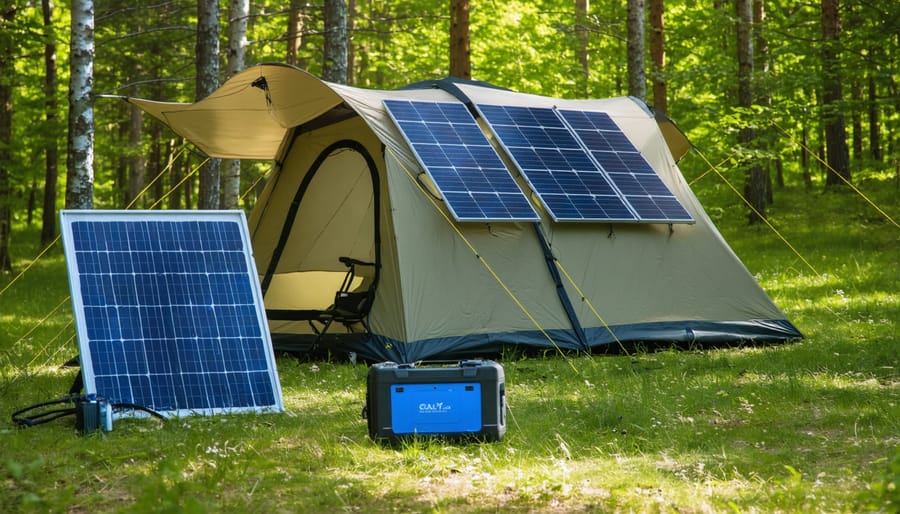
Durable, Long-lasting Gear
Investing in durable camping gear isn’t just good for your wallet – it’s fantastic for the environment too. Look for equipment that’s built to last through Ontario’s diverse weather conditions, from summer thunderstorms to crisp fall nights. Quality tents from brands like MSR and Big Agnes might cost more upfront but can last for decades with proper care.
When shopping, prioritize gear with repair-friendly features like replaceable zippers, tent pole sections, and modular components. Many outdoor stores in Ontario offer repair services, and some brands like Patagonia and Arc’teryx have lifetime warranties. I’ve been using the same camp stove for 15 years, simply replacing O-rings and cleaning it regularly.
Pro tip: Learn basic repair skills like patching tent fabric or fixing backpack straps. Most repairs are simpler than you’d think, and many outdoor retailers offer free workshops on gear maintenance. Keep a small repair kit with items like seam sealer, patches, and spare buckles in your camping kit.
Remember, the most sustainable gear is the gear you already own and maintain well. Regular cleaning, proper storage, and prompt repairs will help your equipment last for countless adventures in Ontario’s wilderness.
Eco-conscious Sleeping and Shelter
Recycled Material Tents
Camping sustainably in Ontario has never been easier, thanks to innovative tents made from recycled materials. These eco-friendly shelters are proving that sustainability doesn’t mean sacrificing performance. Many manufacturers now use recycled plastic bottles and repurposed nylon to create durable tent fabrics that stand up beautifully to Ontario’s varied weather conditions.
I’ve tested several recycled material tents through spring and fall camping seasons, and they’ve handled everything from Algonquin’s unexpected downpours to Killarney’s gusty nights with impressive resilience. The recycled polyester used in these tents actually offers excellent water resistance, while recycled aluminum poles provide sturdy support without adding excess weight.
Popular options include tents made from recycled ocean plastics, which typically feature UV-resistant properties perfect for sunny summer days at Bon Echo. What’s particularly impressive is how these sustainable tents maintain breathability – essential for those humid Ontario nights. They’re also surprisingly lightweight, making them ideal for backcountry adventures.
Pro tip: Look for tents with recycled content certification and pay attention to their seasonality rating. For Ontario camping, you’ll want at least a 3-season tent to handle our dynamic weather patterns effectively.
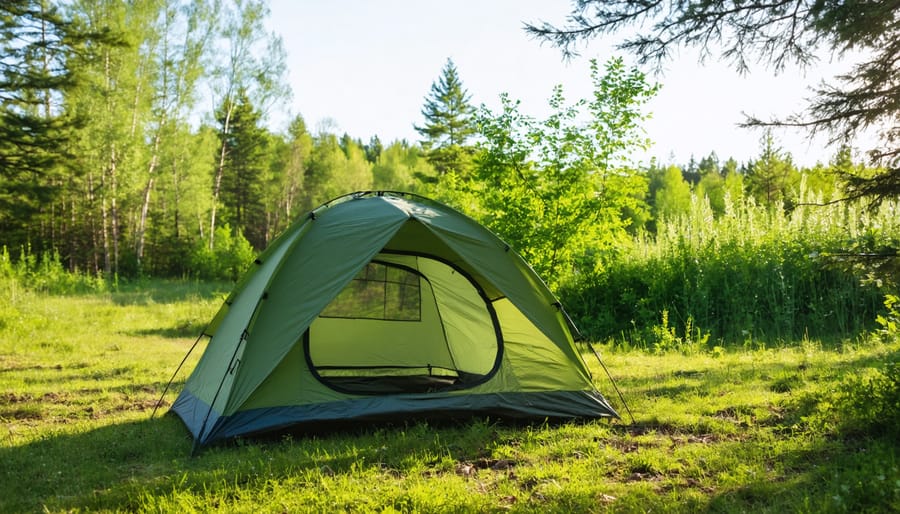
Sustainable Sleeping Systems
When it comes to catching those wilderness Z’s sustainably, your sleeping setup makes all the difference. Today’s eco-conscious sleeping bags often feature recycled materials like repurposed plastic bottles transformed into cozy synthetic fills, or responsibly sourced down with tracking certificates. Look for bags rated for Ontario’s variable climate – a 3-season bag (rated -7°C to +10°C) usually hits the sweet spot for most provincial parks.
For sleeping pads, consider closed-cell foam options, which are not only recyclable but also incredibly durable. Companies like Therm-a-Rest now offer pads made from up to 75% recycled materials, proving comfort doesn’t have to cost the Earth. Pro tip: inflatable pads made from TPU (thermoplastic polyurethane) are both eco-friendlier and more repairable than traditional PVC versions.
Local outdoor shops in Ontario often carry sustainable sleeping gear from brands committed to environmental stewardship. Some even offer repair services, extending your gear’s life cycle. Remember to properly care for your sleep system – store bags uncompressed and clean pads with natural cleaning solutions to ensure years of sustainable slumber under the stars.
Zero-Waste Cooking Equipment
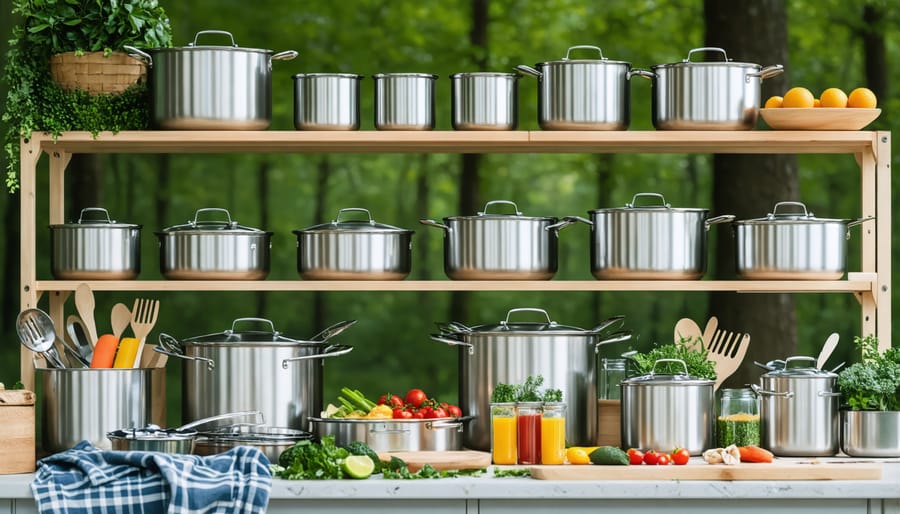
Reusable Camp Kitchen Essentials
When it comes to your camp kitchen setup, durable, reusable items not only support Leave No Trace principles but also enhance your outdoor cooking experience. Start with stainless steel plates, bowls, and utensils – they’re practically indestructible and won’t leach chemicals into your food. A cast iron skillet is your best friend in camp cooking; it gets better with age and can handle everything from pancakes to campfire stews.
For coffee lovers, invest in a percolator or French press instead of single-serve options. Pack reusable silicone food storage bags and beeswax wraps to replace disposable plastic bags and wrap. A good quality cutting board made from sustainable bamboo will serve you for years, and don’t forget durable cloth napkins instead of paper ones.
Pro tip: Look for lightweight titanium cookware if you’re backpacking – it’s incredibly strong and will last a lifetime. Many outdoor stores in Ontario offer these sustainable alternatives, often with lifetime warranties.
Food Storage Solutions
When it comes to food storage in Ontario’s wilderness, protecting both your supplies and local wildlife is crucial. Opt for sturdy, reusable containers made from sustainable materials like bamboo or recycled plastic. Bear-resistant containers are a must-have, particularly in areas like Algonquin Park. Look for certified options made from eco-friendly materials that can withstand curious paws and claws.
For day snacks, beeswax wraps make excellent alternatives to plastic bags. They’re washable, reusable, and naturally antimicrobial. Stainless steel containers with secure locking mechanisms are perfect for storing meals and protecting food from raccoons and other crafty critters.
Pro tip: Instead of disposable coolers, invest in a high-quality insulated cooler made from recycled materials. Many local outfitters now offer rental options, reducing the need to purchase gear you’ll only use occasionally. Remember to store your food at least 200 meters from your campsite and never keep it in your tent – this protects both you and Ontario’s magnificent wildlife.
Where to Find Sustainable Gear in Ontario
Ontario boasts a growing number of retailers dedicated to sustainable outdoor gear, making it easier than ever to camp responsibly. In Toronto, MEC (Mountain Equipment Co-op) leads the way with their extensive selection of eco-friendly camping equipment and gear repair services. Their Toronto and Ottawa locations frequently host gear swap events where you can find pre-loved equipment at great prices.
For those wanting to test before investing, Outpost Rentals in Collingwood and Toronto Outdoor Gear Rentals offer high-quality sustainable camping gear for short-term use. This approach not only saves money but also reduces the environmental impact of purchasing new equipment.
Several independent outdoor shops across the province have embraced the sustainable movement. The Backpacker’s Shop in Kingston specializes in durable, environmentally conscious gear, while Wild Rock Outfitters in Peterborough offers an impressive selection of eco-friendly camping equipment from responsible manufacturers.
Online, Ontario-based marketplace Kijiji often features gently used camping gear, and Facebook Marketplace has become a goldmine for finding local second-hand equipment. Many provincial parks also partner with equipment rental services right on-site – perfect for spontaneous adventures or trying out new gear.
Pro tip: Join local outdoor groups on social media to stay informed about gear swaps and seasonal sales of sustainable equipment. The Ontario Hiking Community and Toronto Outdoor Club regularly organize such events.
Maintenance Tips for Sustainable Gear
Taking care of your sustainable camping gear isn’t just good for the environment – it’s also great for your wallet! Here’s my tried-and-true approach to making your eco-friendly gear last longer in Ontario’s diverse conditions.
First up, always clean your gear after each trip. For tents and tarps, give them a gentle wipe with mild soap and water, ensuring they’re completely dry before storage. Those damp Ontario spring mornings can leave behind moisture that leads to mold if not properly dried.
For sleeping bags and clothing, follow care labels carefully. I’ve learned that most sustainable materials actually prefer gentle washing cycles and air drying. Keep your repair kit handy – a simple needle and thread, patches, and waterproof tape can work wonders for minor tears.
Metal items like reusable utensils and cooking gear need special attention too. After washing, make sure they’re bone-dry to prevent rust, especially if you’re camping near the Great Lakes where humidity levels can be high.
For solar-powered gear, regularly clean the panels with a soft cloth and check connections for corrosion. Store batteries properly during our harsh winters – room temperature is ideal.
Remember, waxing zippers and treating water-resistant coatings annually will significantly extend their life. I always perform these maintenance tasks during the off-season when I’m dreaming about next summer’s adventures.
Pro tip: Keep a maintenance log! It helps track when items need care and helps identify gear that might need replacing before it fails on the trail.
Choosing sustainable camping gear isn’t just about being environmentally conscious – it’s about being a responsible steward of Ontario’s breathtaking natural spaces. By investing in durable, eco-friendly equipment, we’re not only reducing our carbon footprint but also ensuring future generations can enjoy the same pristine lakes, forests, and trails we cherish today. The switch to sustainable gear often leads to better quality products that last longer, ultimately saving money while protecting our environment. Remember, every sustainable choice we make, from our tents to our cooking equipment, helps preserve the delicate ecosystems of Ontario’s parks. Whether you’re camping in Algonquin or exploring the Bruce Peninsula, your gear choices matter. Let’s continue to embrace sustainable camping practices and keep Ontario’s wilderness wild and wonderful for years to come.



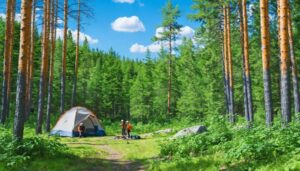





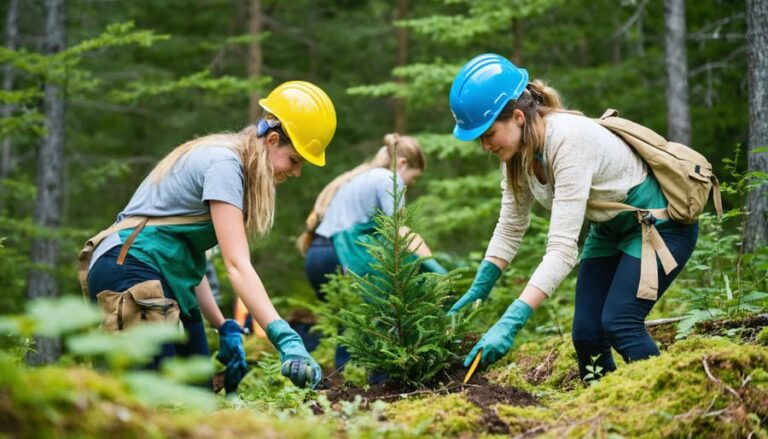

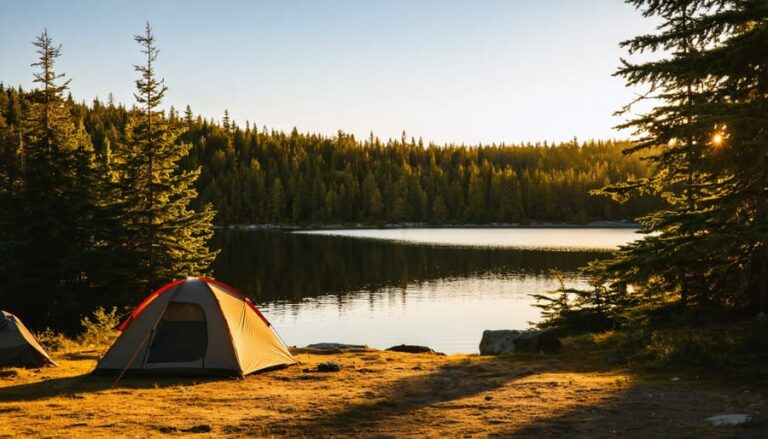
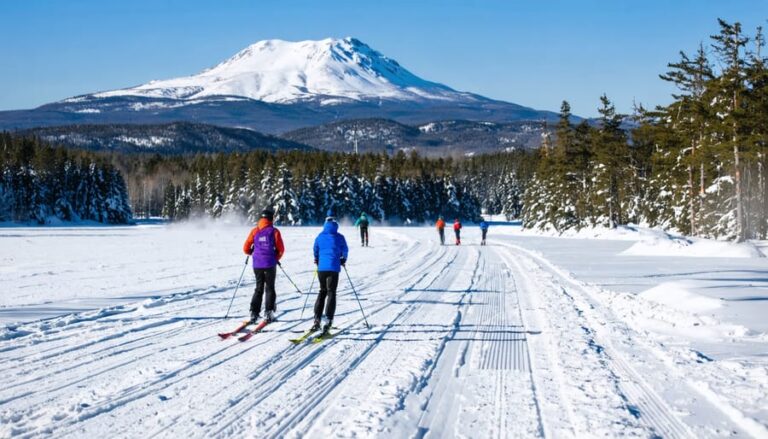

+ There are no comments
Add yours